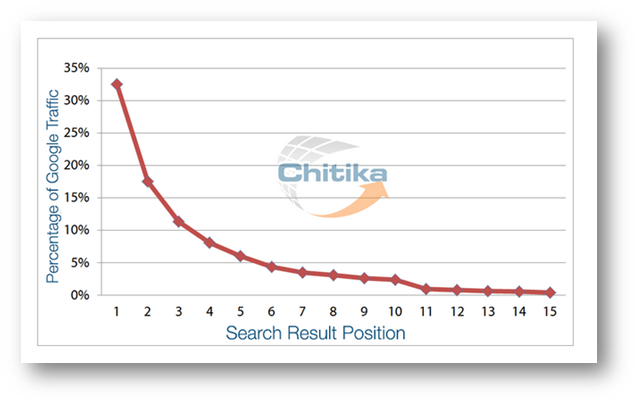So, what do you do? Where do you work? Oh, that sounds really interesting, I’ve got to get you in touch with my partner. What’s your name again? The company’s name? Do you have a card?
If you’re in the midst of a career change, go to professional conferences, are an entrepreneur or a businessperson, you probably take part in this kind of conversation at least once a month.
 One of the first thing you learn in business is to be able to whip out your ‘elevator pitch’. This is a very short summary (between thirty seconds and two minutes, where the first eight seconds are the most crucial), in which you explain exactly what it is you do, what service you provide, what product you have and what your company does. Anyone who’s tried writing a pitch like that knows that it’s not an easy challenge. Writing for someone who doesn’t know you or your company is a process that gets you thinking, and can inspire fresh insights such as “What do I actually do?”
One of the first thing you learn in business is to be able to whip out your ‘elevator pitch’. This is a very short summary (between thirty seconds and two minutes, where the first eight seconds are the most crucial), in which you explain exactly what it is you do, what service you provide, what product you have and what your company does. Anyone who’s tried writing a pitch like that knows that it’s not an easy challenge. Writing for someone who doesn’t know you or your company is a process that gets you thinking, and can inspire fresh insights such as “What do I actually do?”
What’s all this got to do with online reputation management? Assuming that the potential employer / partner / investor / date you just met at the conference wasn’t just being polite when they spoke to you, the next step they’ll take before arranging a meeting or calling you is search for your name on Google. It’ll take them a few seconds to judge whether what they see in the search results really reflects what you said in your elevator speech, and if not, your chances of ever seeing them again greatly diminish. In order to build up a perfect online reputation, follow the steps in this article.
1. Analyze your situation
Type your full name or your company’s name in Google, and make an Excel spreadsheet with all the results that come up on the first three pages. Decide what changes you’d like to make. Mark all the results that you’d like to come up first in green, and the ones you’d rather remove or push down, in red. Positive results are a subjective decision, of course, and what’s good for one person isn’t necessarily good for others. Businessmen don’t want to see an old enterprise, a personal blog, or social network profiles that don’t directly relate to their business come up in the first page of search results. But anyone who’s had lawsuits filed against them, or just doesn’t have relevant content out there, would be happy to have their social profile on page one.
2. Removing harmful content
In most cases, properly building up an online reputation includes distributing relevant original content about the brand or person whose reputation is being managed, and promoting this content to the first page of search results in a way that accurately reflects their reputation and experience in the real world. In some cases, however, the first page contains negative references such as old lawsuits, negative reviews, and even content intentionally written to harm your reputation, such as defamation and libel. In such case, you should first deal with the negative references and only afterwards continue to the following steps.
Removing harmful content (1) – start from the source
Try contacting the owner of the website and ask them to take down the harmful content. On big websites, the chances of this working are slim, but in the case of smaller sites there’s a good chance of being taken seriously, especially when the content is obviously offensive and damaging your reputation. In extreme cases, if the site manager refuses to take down the content, a letter from a lawyer can solve the problem.
Removing harmful content (2) – contacting the search engines themselves
The aim is to remove unwanted results from the search engines themselves, and especially from Google. In the (probable) case that the first step didn’t work, you can turn to the search engines:
Remove content from someone else’s site
You can find three content removal options:
- Remove content for legal reasons
- Remove personal information
- Remove content that’s not live
3. Creating branded online assets
Google prefers strong websites, sites that are considered authorities in their field. Google especially likes profiles on the leading social networking sites, and you can see that when you type someone’s name in Google, there’s a good chance that the first results will be their profile on Facebook, LinkedIn, or other well-known networks. Google indexes these sites much more frequently, and gives them an advantage in the page ranking.
The leading social networks that you should have an updated profile on are:
- Google+
- YouTube
- Vimeo
- Flickr
Setting up a profile on a social network is quick and simple, but is absolutely useless if you don’t use it properly. Look what Seth Godin, a global marketing guru, has to say about it:
[youtube_sc url=”http://youtu.be/r0h0LlCu8Ks” modestbranding=”1″]
- Update relevant content regularly. Don’t bother opening a YouTube channel if you have nothing to put there.
- Gathering ‘friends’ whom you don’t know and have nothing to do with your field is a waste of time.
- Social networks are meant for two-way communication. One-way advertising isn’t effective.
To have Google index your site under the correct brand name, you have to do some basic site optimization: use your full name and not nicknames, place the brand name in the title, and, if possible, create a short URL that contains the brand name too. There are other things you can do to make your site Google-friendly, and take control of the title and description that Google displays in its results, but we’ll cover that in a separate guide.
4. Building a personal website
Having your own website using your brand name come up first on Google’s search results looks great and presents you as serious and web-savvy. Anyone looking to seriously improve their online reputation can and should create a website or a blog containing their resume, media reports, and their own articles. Online resumes are steadily replacing traditional ones. How can you do all this? You have two choices:
- Setting up a personal blog on a popular blogging platform (The cheapest way).
- Setting up a personal blog on your own web domain (The recommended way).
5. Promoting positive results and demoting negative results
If you ask Siri (Apple’s virtual assistant app) where to bury a corpse, you’ll get a serious answer (try it yourself, or look it up on Youtube!) If you ask a cynical SEO guy the same question, he’ll probably tell you “on the third page of Google”…
Getting rid of negative results (or results that are simply irrelevant to your reputation) is done by ranking results that we want to emphasis, and thus pushing the negative results down the ranks.
Here are the results of a study, which show why it’s so important for your reputation that you appear on the first page of Google (Chitika 2013):
 You can easily see that, on average, 92% of web traffic comes from sites listed on the first page of Google. 32.5% comes from the first result on the page, 17.6% from the second, and 11.4% from the third. Only 8% of web traffic ever gets to sites not listed on the first page of search results on Google.
You can easily see that, on average, 92% of web traffic comes from sites listed on the first page of Google. 32.5% comes from the first result on the page, 17.6% from the second, and 11.4% from the third. Only 8% of web traffic ever gets to sites not listed on the first page of search results on Google.
Google’s search algorithm takes hundreds of factors into consideration when calculating the position for each search term. The two most important are:
- Internally optimized sites and pages. Just by optimizing the page in the right way, we can help Google understand what the main keyword that describes the page. In most cases, it’s enough to have the brand name (your name or your company’s) in the title tag and in the Meta description.
- The number and strength of the links leading to the page you’re trying to promote. For a start, make sure that all your online assets link to each other, and that your blog links to your social networks and vice versa.
If you have a way of getting links from other websites to your site, that’s great, as long as they’re relevant sites and not full of spam. If you want to promote your site using competitive keywords, which are not necessarily your brand name, it’s best to turn to a professional SEO company.
6. Privacy settings on social networks
Anything private should stay private. Make sure that only the information that you wouldn’t mind seeing online is visible to others. Having an embarrassing photo online is no longer only a celebrity’s problem. Everyone can be harmed by incorrect privacy settings. Deleting unflattering photos and taking control of the privacy settings on Facebook and LinkedIn is absolutely necessary. Read the guides on this site for how to do that best.
Conclusion
The whole issue of reputation management by pushing negative results away is legitimate and legal, even according to Google. This is what they write about it:
“If you can’t get the content removed from the original site, you probably won’t be able to completely remove it from Google’s search results, either. Instead, you can try to reduce its visibility in the search results by proactively publishing useful, positive information about yourself or your business.” (Google Support).
Building and maintaining social network profiles on relevant platforms, setting up your own website and promoting existing content, all this will cause unwanted negative content to be buried deep down the results list, and will let you have the first page of Google filled with content you can be proud of, to the point where you can finish your elevator pitch with a confident “Google me!”


